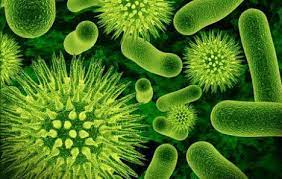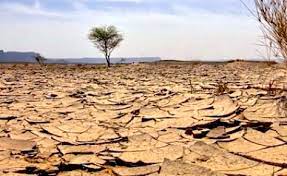
Bacteria are prokaryotic microorganisms, meaning they lack a nucleus and other membrane-bound organelles found in eukaryotic cells. Their simplicity in structure belies their astonishing adaptability and versatility. They come in a wide range of shapes, including spheres (cocci), rods (bacilli), and spirals (spirilla), each with unique characteristics.
Bacteria exhibit an astounding diversity. They are classified into several phyla, with the most well-known being Proteobacteria, Firmicutes, Actinobacteria, Bacteroidetes, and Cyanobacteria. Each phylum contains numerous species with distinct features and functionalities.
The cellular structure of bacteria is relatively simple. They have a cell membrane that encloses the cytoplasm, where genetic material, ribosomes, and various cellular machinery reside. Many bacteria have a rigid cell wall made of peptidoglycan, a complex polymer that provides structural support. Some bacteria possess an additional outer membrane, such as Gram-negative bacteria.
Bacteria reproduce asexually through a process called binary fission. In this method, a single bacterium duplicates its genetic material and divides into two identical daughter cells. Given the right conditions, bacteria can multiply rapidly, leading to exponential growth and colonization of environments.
Bacteria, often associated with diseases and infections, play a vital role in the environment, serving as a cornerstone for various ecosystems and contributing significantly to the global economy. These microscopic organisms impact our lives in ways that extend beyond their role in human health.
This article explores the economic importance of bacteria in the environment, shedding light on their diverse contributions to agriculture, industry, and waste management.
Agricultural Benefits
Nitrogen Fixation
Bacteria possess the unique ability to convert atmospheric nitrogen into a usable form for plants, a process known as nitrogen fixation. This crucial function allows plants to thrive in nitrogen-poor soil, reducing the need for synthetic nitrogen fertilizers.
By forming symbiotic relationships with leguminous plants, bacteria such as Rhizobia enable higher crop yields, lower production costs, and decreased environmental pollution, resulting in significant economic benefits for the agricultural sector.
Decomposition and Nutrient Cycling
Bacteria are key players in the decomposition process, breaking down organic matter into essential nutrients that can be recycled in ecosystems. Their role in nutrient cycling ensures the replenishment of soil fertility, leading to improved crop productivity.
Additionally, bacteria contribute to the formation of humus, a crucial component of soil structure and moisture retention, aiding in sustainable agriculture practices.
Industrial Applications
Bioremediation
Bacteria exhibit remarkable capabilities in cleaning up contaminated environments through a process called bioremediation. Certain bacteria can degrade harmful pollutants such as hydrocarbons, heavy metals, and pesticides, transforming them into harmless substances.
This ability presents an environmentally friendly and cost-effective alternative to traditional cleanup methods, benefiting industries involved in waste management, oil spills, and chemical spills.
Biofuels Production
Bacteria play a pivotal role in the production of biofuels, contributing to the renewable energy sector. Through fermentation or enzymatic processes, bacteria can convert organic materials, such as crops and agricultural waste, into biofuels like ethanol and butanol.
These biofuels can be used as a substitute for fossil fuels, reducing dependence on non-renewable resources, promoting energy security, and stimulating economic growth in the bioenergy sector.
Pharmaceutical and Biotechnological Advancements
Antibiotic Production
Bacteria have been the primary source of antibiotics, which have revolutionized modern medicine. Antibiotics derived from bacteria, such as penicillin, have saved countless lives by combating bacterial infections.
The pharmaceutical industry heavily relies on bacteria for the production of antibiotics, generating substantial revenue and driving medical advancements.
Enzyme Production
Bacteria are valuable sources of enzymes, which are essential in various industrial processes. Enzymes produced by bacteria have applications in the food and beverage industry, detergents, textile manufacturing, and biofuel production, to name a few.
The production of enzymes by bacteria offers cost-effective and sustainable alternatives to traditional chemical processes, leading to increased efficiency and profitability in many sectors.
Future Potential and Research
Continued research on bacteria and their economic importance has the potential to unlock further applications.
Areas of interest include the development of probiotics for improving human health, bioplastics production using bacteria, and the utilization of bacteria in carbon capture technologies. Such advancements could lead to novel industries, job creation, and economic growth in the coming years.
Bacteria are not solely the cause of diseases but are essential contributors to the global economy. From enhancing agricultural productivity to enabling bioremediation, biofuel production, and pharmaceutical breakthroughs, bacteria offer numerous economic benefits across various industries.
Recognizing and harnessing the economic potential of bacteria in the environment is crucial for sustainable development, ensuring a healthier planet and a thriving economy for future generations.






















